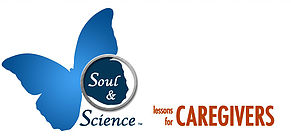BOOKS

The Nest in the Stream: Lessons from Nature on Being with Pain
– Michael Kearney MD, 2018
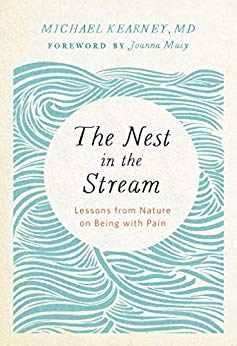 A concise and inspirational book for anyone dealing with pain by a long time palliative care doctor who is greatly inspired by Native American wisdom and the natural world. This book is a celebration of impermanence and what it means to be awake, alive, and connected to the world.
A concise and inspirational book for anyone dealing with pain by a long time palliative care doctor who is greatly inspired by Native American wisdom and the natural world. This book is a celebration of impermanence and what it means to be awake, alive, and connected to the world.
The Nest in the Stream is an encouraging and inspiring book for the times we live in. Michael Kearney, a physician whose day job is alleviating the pain and suffering of others, shows that how we live with our pain matters hugely, as it affects our quality of living and our capacity to find healing for ourselves, for others, and for our world. Drawing on engaged Buddhism, the indigenous wisdom of Native American and Celtic spirituality, and the powerful teachings he gained by observing nature, Kearney presents a new model for resilience and self-care.
Traditional models of self-care emphasize the importance of professional boundaries to protect us from stress, and time out to rest and recover. The Nest in the Stream offers a way of being with pain that is infused with mindfulness, openness, compassion, and deep nature connection that encourages us to act for the freedom and welfare of all. It will appeal to those whose everyday occupation involves dealing with pain, such as healthcare workers, environmental activists, or those working on the front lines of trauma, but it will also be of interest to everyone who longs to live in our wounded world with an open heart.
Coming Back to Life: The Updated Guide to the Work that Reconnects
– Joanna Macy and Molly Young Brown, 2014
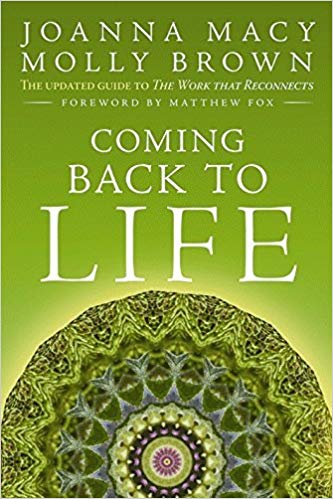 The original Coming Back to Life has helped people transform denial, despair and grief in the face of the social and ecological challenges of our time. This new, completely updated edition repositions the classic work within the context of deepening global crises and the cognitive, spiritual and perceptual revolutions occurring all around us
The original Coming Back to Life has helped people transform denial, despair and grief in the face of the social and ecological challenges of our time. This new, completely updated edition repositions the classic work within the context of deepening global crises and the cognitive, spiritual and perceptual revolutions occurring all around us
Facilitator Manual for Mindfulness-Based Ecotherapy
– Charlton B Hall LMFT/S – 2016
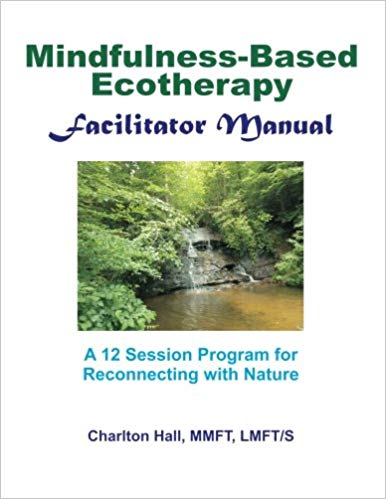 This Facilitator Manual contains the complete text of the Mindfulness-Based Ecotherapy Workbook plus additional material on how to facilitate each session of the program. The Facilitator Manual also includes information on running a successful group, and the stages of group change and group dynamics. This manual is designed to help facilitators of the Mindfulness-Based Ecotherapy program successfully implement a workshop series. The Mindfulness-Based Ecotherapy workshop series teaches you the 12 skills of Mindfulness-Based Ecotherapy (MBE) by introducing one of these skills at each of the 12 sessions in the program. The experiential nature of the work allows anyone with access to outdoor spaces the opportunity to complete the series on their own. The Mindfulness-Based Ecotherapy Workbook allows you to embrace the healing power of nature in an experiential way.
This Facilitator Manual contains the complete text of the Mindfulness-Based Ecotherapy Workbook plus additional material on how to facilitate each session of the program. The Facilitator Manual also includes information on running a successful group, and the stages of group change and group dynamics. This manual is designed to help facilitators of the Mindfulness-Based Ecotherapy program successfully implement a workshop series. The Mindfulness-Based Ecotherapy workshop series teaches you the 12 skills of Mindfulness-Based Ecotherapy (MBE) by introducing one of these skills at each of the 12 sessions in the program. The experiential nature of the work allows anyone with access to outdoor spaces the opportunity to complete the series on their own. The Mindfulness-Based Ecotherapy Workbook allows you to embrace the healing power of nature in an experiential way.
Ecotherapy: Theory, Research and Practice 1st ed. Edition
– Martin Jordan (Editor), Joe Hinds (Series Editor), 2016
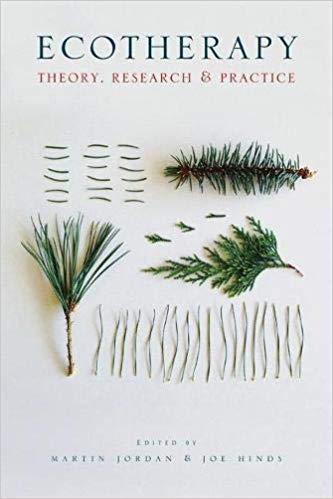 The idea of using nature to improve mental and emotional wellbeing has existed for many years, in many forms. However, growing levels of interest in holistic, reciprocal relationships with nature have led to the development of an explicit field, termed Ecotherapy.
The idea of using nature to improve mental and emotional wellbeing has existed for many years, in many forms. However, growing levels of interest in holistic, reciprocal relationships with nature have led to the development of an explicit field, termed Ecotherapy.
In this thought-provoking new book, Martin Jordan and Joe Hinds provide a comprehensive exploration of this emerging area of practice. Divided into three parts, the book offers a unique examination of a range of theoretical perspectives, unpacks the latest research and provides a wealth of illuminating practice examples, with a number of chapters dedicated to authors’ own first-hand experiences of the positive psychological effects of having contact with nature.
Topics covered include:
• The foundations of ecotherapy, including how it can be defined, its relation to psychotherapy and ecopsychology, and the research and various theory bases that inform it
• The benefits of incorporating nature into palliative care
• Nature as a tool for crisis recovery
• Nature-based therapy for stress-related disorders
• The use of nature to promote optimal functioning, with a focus on areas such as generative experiences, emotional development and exploration, autonomy and a sense of belonging.
